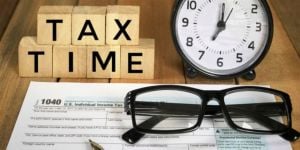New Tax laws from January 2024
Last activity 12 September 2024 by martinoo2002
2686 Views
90 replies
Subscribe to the topic
Post new topic
That guy Thomas Carden is in a youtube video admitting he has no idea what will happen with the new tax laws. So that headline is false in this article. I have spoken to a professional international tax advisor and I advise anybody worried about this new law to do the same. There are implications and professional advise should be consulted. Here is the link to Thomas Carden https://www.youtube.com/watch?v=eJvg-6BEvJw
That guy Thomas Carden is in a youtube video admitting he has no idea what will happen with the new tax laws. So that headline is false in this article. I have spoken to a professional international tax advisor and I advise anybody worried about this new law to do the same. There are implications and professional advise should be consulted. Here is the link to Thomas Carden https://www.youtube.com/watch?v=eJvg-6BEvJw
That guy Thomas Carden is in a youtube video admitting he has no idea what will happen with the new tax laws. So that headline is false in this article. I have spoken to a professional international tax advisor and I advise anybody worried about this new law to do the same. There are implications and professional advise should be consulted. Here is the link to Thomas Carden https://www.youtube.com/watch?v=eJvg-6BEvJw
That guy Thomas Carden is in a youtube video admitting he has no idea what will happen with the new tax laws. So that headline is false in this article. I have spoken to a professional international tax advisor and I advise anybody worried about this new law to do the same. There are implications and professional advise should be consulted.
That guy Thomas Carden is in a youtube video admitting he has no idea what will happen with the new tax laws. So that headline is false in this article. I have spoken to a professional international tax advisor and I advise anybody worried about this new law to do the same. There are implications and professional advise should be consulted. -@sowo
Stop coming up with nonsense advice to people. You are totally clueless and don't understand anything what so ever about the changes in Thai tax laws. Just click on the two links I attached recently and read the articles. In your case,read slow. Even you might understand. Why go to YouTube to check out changes in Thai tax laws when there are thai newspapers and news websites in English explaining everything? Please tell.
i am thinking of retiring in Thailand next year. Australia has a DTA with Thailand so in theory my superannuation pension would not be subject to tax in Thailand (the part that i transfer to Thailand anyway). However i am over 60 and my pension is not taxed because of my age. It therefore seems to me possible that i would need to pay Thai tax. Anyone else in the same boat who knows any more about this? It may well be a case of wait and see.
i am thinking of retiring in Thailand next year. Australia has a DTA with Thailand so in theory my superannuation pension would not be subject to tax in Thailand (the part that i transfer to Thailand anyway). However i am over 60 and my pension is not taxed because of my age. It therefore seems to me possible that i would need to pay Thai tax. Anyone else in the same boat who knows any more about this? It may well be a case of wait and see.
-@amckenzie
No one is after your pension incl. the Revenue Department in Thailand. Is this so hard to understand? These changes in taxation from Jan 2024 are just closing a 40 year old loophole where wealthy Thai's didn't have to pay tax on money earned abroad if they declared the income the following year or later. Go back a few posts and check out the two articles I posted a few days ago. A piece of advice, stop reading posts from clueless people.
DYOR regarding this tax. I doubt very much Leeds Forever is an International Tax expert and neither am I. What does stand out to me is (head in the sand syndrome) with his posts. I have consulted a International tax consultant and depending on your individual circumstances this Tax will effect you. Leeds thinks DTA,s are written in stone. They are not that simple. If in doubt consult an expert. Experts do not post here. So i agree with one of Leeds rude comments (stop reading posts from clueless people). Self reflection i guess.
Well, I am a corporate tax expert which is also a fine line to personal tax as corporations are led by persons
I support and agree with Leeds his opinion. PLUS all the DTA will prevent anything the Thai Tax Department has in mind for foreigners residing in Thailand and their taxable situation and income
The most important words are DTA, google and when there is one between your home country and Thailand, well then have a sound sleep the coming nights
My main concern was noted by a prominent American attorney in BKK in a youtube interview. He said that the way the new law is currently written that it can be interpreted that even with a no double tax treaty you may be required to pay the difference between the tax you paid in your home country and the tax you would owe now in Thailand starting on 1/1/2024. If the Thai tax rate was 17% and you paid 15% say in the USA, then you would be required to pay the difference … in this example a 2% tax to due to Thailand. I sure hope he’s wrong but I understand he, along with other business folks, are working with the Thai government to change this nightmare scenario but time is quickly running out. Yikes!
My main concern was noted by a prominent American attorney in BKK. He said that the way the new law is currently written that it can be interpreted that even with a no double tax treaty you may be required to pay the difference between the tax you paid in your home country and the tax you would owe now in Thailand starting on 1/1/2024. If the Thai tax rate was 17% and you paid 15% say in the USA, then you would be required to pay the difference … in this case 2% tax to Thailand. I sure hope he’s wrong but I understand he, along with other business folks are working with the thai government to change this nightmare scenario but time is quickly running out.
@mdgolfer2003
How does that apply if you are on a pension from your home country, or does it just apply to the employed in Thailand?.
@mdgolfer2003
That's exactly how I understood it.
@mdgolfer2003
How does that apply if you are on a pension from your home country, or does it just apply to the employed in Thailand?.
-@suzianddave
If I may, it applies to both thai and non-thai except Thais and those from non-DTA countries generally do not have computational credits from foreign sourced remittances into Thailand whereas non-Thais DTA countries have. These computation tax credits will be used reduce the Thai tax liability on their remittances.
One could wonder though, pending clarifying guidelines, on how regular savings would be computed for tax credit when brought in. I understand annual pensions are simpler to compute due to it being based on prevailing tax rates of source country. I would think the same tax credit situation applies to those pensions received from source countries without tax (e.g., Canada, maybe UK, and US Roth pensions). So in my mind, it's the accrued savings (not pensions) I am watching for. Obviously there is no tax liability on those anymore as those are post-taxed already during the years they were earned. My guess is it will also be based on prevailing tax rates at the time of filing (as opposed to searching for historical tax filings for actual taxes paid).
In my experience if a person does not have a pension in own land and living on savings that are abroad and withdraw by foreign ATM card or pay by foreign Credit card or transfers from own bank account abroad to own name in a Thai bank account once in a while and not having any income produced in Thailand from official source or company, then cannot be asked to pay any tax in Thailand. Except the 220 baht for foreign bank withdrawal each time or a tax on eventual interest obtained on a deposit kept in a saving account with some living money.
Different could be in case of a pension that is transfered on a monthly base from abroad to a thai bank account, that can be more easy to be traced cause coming from a public foreign entity to a Thai account on foreigner's name.
And in case that this monthly remittance is used to get the garanty amount used to obtain a Non-O Retirement stay permit, cause will be officially declared to the Thai immigration authority.
But otherwise don't see the way to obtain information from your homeland by the Thai revenue office of an existing revenue.
Instead in case that there is an income, for a pension or a job, received abroad but at same time living in Thailand as a pensioner or working in Thailand for that homeland company, some countries allow to move officially the residency address to a foreign land and not to pay income tax in the country of origin in order to pay those income tax in the other new place where living, to avoid the double taxation problem or the compensation between the 2 taxes when are at different %.
Some EU countries have different rules, as well should have non EU.
First step is to check what the own land rules are and what they allow to do, and then comprare with local tax level and decide what to do and if ia the case to do something. Sometimes better just not do anything and not show, waiting that there is eventually an official request addressed personally.
But don't think that Thai revenue office can have so easy the list of all foreigners living in thailand, from one day to an other, and check their income one by one, would be a big task.
^ Thanks for the info of B220 fee per ATM withdrawal. Do you know how much is maximum ATM money one can withdraw a day and at which ATM? If I want to live on a budget of B70,000 a month -- how many withdrawals would that be? Can I withdraw B35,000 in a single ATM withdrawal? If so my fee would be B220 x 2 withdrawals = B480 per month.
Oh shoot, I read it's only up to B20,000 per withdrawal max. That means about B1K fee per month or B12K fee per year or $350 per year. For my situation, better to transfer money to Thai bank account and not deal with foreign ATM withdrawal cost of B220. The tax credit I get will end up zero-$100 tax liability max when filed with the Thai government.
Then again $350 cost of ATM fees per year could be attractive over having to have the hassle to file income tax in Thailand. But if they still require everyone the hassle of filing tax each year, then I might as well just transfer, and get the credits reduce (or even zero out) the Thai tax liability.
Or like me, you could have a US Bank account that refunds 100% of withdrawal fees from foreign country ATMs. However, you must retain your residence in the US to be eligible.
@Karambit Please explain. Which bank and program? I'll be keeping my residence in US.
From reading this thread it sounds like only paranoid people who can't really live peaceful and worryless life go to live in Thailand ..You came to live to one of the most beautiful and relaxing country in the world with money that the locals wouldn't have if they have lives 9 lives, and you look for things to worry about???? 🤔
From reading this thread it sounds like only paranoid people who can't really live peaceful and worryless life go to live in Thailand ..You came to live to one of the most beautiful and relaxing country in the world with money that the locals wouldn't have if they have lives 9 lives, and you look for things to worry about???? 🤔
-@ThailandHereICome
Everyone does what's best for themselves.
You shouldn't worry about others worrying. See what I did there?
Hi all,
Just want to help answer this question for everyone.
Firstly any funds from overseas going into your bank account COULD be included as your income for income tax calculations. The key thing is keep documentation to determine the source of these funds.
Why source of income is important? It affects a lot of things from the DTA with each country, deductions allowed for calculating personal income taxe (PIT) and also the tax rate that your home country for that particular source of income.
For example you declare your income is obtained from copyright, dividends and pension funds. For income coming from copyright, you can have decutions up to 40% not exceeding 60k baht for PIT calculations.
Take dividends for example, even if you have a DTA with Country A on dividends, if Country A has a 0% taxes on that type of dividend, you will still need to include that income into your PIT calculation due to the "credit against tax payable" clauses in most DTA.
Same with pensions, some DTAs between countries will have a clause to avoid double taxation however the key thing is also the tax rate in each country on pensions.
DTAs are there to avoid double taxation however, most DTAs would have this thing called credit against tax payable whereby if your type of income gets taxed less in your home country, you'll surely get taxed in Thailand if taxes are higher for the same type of income. Rarely I've seen a type of income without this credit against tax payable clause in the DTAs between countries.
Conclusion is, firstly we need to determine which type of income is best suited for the DTAs between Thailand and your home country, taking into account the tax rates and any specific clauses in the DTAs. Personally I would also consider the easre of getting documentation and proving your source of income.
Good Morning folks. Steve here from Australia. In the process of organising retirement in Thailand and now hit with a change in tax laws for money sent there. Looks bad. Does anyone on the ground there have any clarification of these laws? Thanks and regards. -@sowo
If you're interested, there is a comprehensive Tax Guide on this topic on the ThaiVisa website under the "Jobs, Economy, Banking, Business, Investments" forum. There is a separate thread for just questions & comments. It's been ongoing for the past 6 or so months and it is very informative. Link below:
@martinoo2002
Under proposed change's to the tax law next year all income earned abroad will be taxed in Thailand if you have a double tax agreement in your country you will still need to pay tax on the difference
Look up thai tax chart
Eg if i hade 37,000 income in Australia i would pay around 10% tax on that so there for i would have to pay another 30,000baht in tax to the thai government
@freemanbruce
I am not clear of the currencies but i took 35000 as AUD per annum
Look at the calculation including exemptions/deductables which every tax payer is entitled too
Net Income 35000 AUD 840,000.00 Tax Amount
150,000.00 0% -
150,000.00 5% 7,500.00
200,000.00 10% 20,000.00
176,250.00 15% 26,437.50
- 20% -
- 25% -
- 30% -
- 35% -
676,250.00 53,937.50 8.0%
@sowo apparently it's only repatriated money that's taxed and only if you're there more than 180 days per year. My solution to this is to not open a bank account and only live there for less than 180 days.
Even if you don't pay tax you are still going to need to file taxes each year which means you'll be doing it twice. Once at home at once in Thailand. Its a pain in the arse which is why I'm now not going to stay for more than 180 days so that I can avoid being a tax resident.
@Milkfed Great solution for us that live here.Spend 180 days away from your home.
Where is Leeds Forever these days?
@JOHNMELL I wasn't suggesting a solution for anyone. I was saying what I will be doing. I'm nomadic anyway so it's suits me fine.
In case anyone is interested, there are several in-depth discussions on the new Thai tax rules on the Asean Now website. Links below:
https://aseannow.com/topic/1324294-intr … -thailand/
@Milkfed
Not true. I can't believe the *** you are spouting here without any link or understanding of the issues involved.
@martinoo2002 I'm not "spouting" anything. I'm merely adding to the conversation what I have learnt from various sources. I am trying to navigate through a very confusing transition the best I can. Your aggression is really unwarranted and unnecessary so please direct your negativity and anger elsewhere 👍
Sorry if you felt I was aggressive because the message was not intended so. It is purely frustration about the fact that people message first and then check. First of all the new law is not meant for foreign retirees, but clearly taxes wealthy Thai families/businessmen that bring untaxed or low taxed into Thailand. Secondly most of the countries including yours will have a DTA. just check it.
Some of these countries will still ask to declare a 'worldwide income' document and they will check IF you pay taxes here and whether the taxation is reasonable....
Most countries have flat retirement tax fees of around 10% so even the low Thai tax will not have an impact and if so, not having a DTA and forgetting about the real intention of the law, the taxation here will be negligible.
On various forums, including this one, rumors are spread by people that have no clue and and various (advertisement of) tax accountants that just give their advise for a nice fee over something they are not clear as well as the Thai government has not made the decision yet.
Now we come to the practical part of the problem. There are many, if not most, foreigners that are here at Non-O retirement or marriage based on bank balance, as I am. Never have the requirements for that type of extended stay even mentioned income brought into Thailand....next to the fact IF the government decides to do that it will mean a tremendous expansion of labor and information at a certain cost, while DTA are in place for many years just to prevent these costs.
All and all there should be no 'fear' for the average Joe unless Joe is here under fraudulent circumstances, like aided by 'visa centers' in order to comply to the requirements.
I have been working for multinationals, work that included tax planning, so I think I understand what I am talking about and my advise is free.......
Some clarification on terminologie used in the tax reform proposition
The reform
The reform mandates taxation on all foreign-sourced income remitted to Thailand, affecting dividends, interest, rents, and capital gains
Foreign-sourced income is
Income from Foreign Work or Assets Income generated from work or assets located abroad must be reported if transferred into Thailand from January 1, 2024, onwards. This includes dividends, interest, rental income, and capital gains from foreign investments.
So nowhere does this mention retirement income, pensions/provident funds but it is purely based on enrichment through use of cross regional/global tax loop holes.
Many expats that work for multinationals have a basic income in Thailand, and the large remainder is earned in their home country or in a tax friendly environments like Singapore, Hong Kong or even through WISE.
People, please start breathing again....
@martinoo2002
Thank you for this information, very interesting.
I will be moving to Isaan in 2026, I'm not sure whether it will be on a marriage or retirement visa as yet. (advice would be welcomed.)
I receive a civil service pension in the UK, and have previously read that this type of pension is non taxable in Thailand.
It is taxable in the UK, but I don't get enough to pay tax, ie it's less than £12,750 pa.
Am I right in assuming the above?? Again, advice would be welcomed to my post.
Regards
Simon
@simonbolton79
Marriage has lower financial requirements, let's say for easy measurement 50%, I think you cannot classify for retirement but can for marriage. Bank balance is another option, same rule
But marriage has more additional personal requirements like house book, wife ID, chanote of house if live rented, hand made map to your house, and some more which I forgot....
You need to pick up the list from your local immigration as it varies per office, not much, just some details, any other lists you have access to or are being sent to by well meaning 3rd parties/buddy's wont do it in your immi office, unless they are from that office of course
Articles to help you in your expat project in Thailand
 Income tax in Thailand
Income tax in ThailandThailand is not a tax haven. In Thailand, there are two main types of taxpayers — residents and ...
 Connecting to the Internet in Thailand
Connecting to the Internet in ThailandHaving reliable internet is a priority for many foreigners living in Thailand — not just for work reasons if ...
 Getting a landline or mobile phone in Thailand
Getting a landline or mobile phone in ThailandOnce you touch down in Thailand, you will probably want to get a mobile phone with a local Thai SIM so that you ...
 Dating in Thailand
Dating in ThailandThailand is one of the top destinations in the world when it comes to travel, but not only that. In recent years, ...
 Working in Chiang Mai
Working in Chiang MaiChiang Mai's ethnic diversity, breathtaking scenery, and the multitude of festivals and attractions ...
 Healthcare for the elderly in Thailand
Healthcare for the elderly in ThailandThailand is one of the world's most popular retirement destinations. There are a number of reasons for that, ...
 Moving with your pet to Thailand
Moving with your pet to ThailandAnimal lovers will be happy to know that they can bring their pets with them when moving to Thailand. There are ...
Find more topics on the Thailand forum




